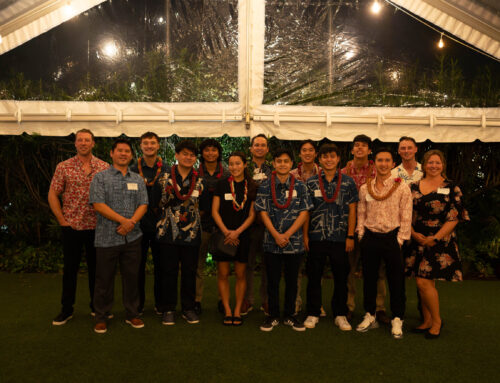Based on extensive research and surveys, a vast majority of people believe that curiosity is king in the world of generating new ideas and is the lifeblood of a company’s performance.
Why, then, aren’t more businesses placing value on this trait? There is a significant chasm between how valuable curiosity is perceived and how well it is rewarded in all facets of job occupations and grantmaking.
Curiosity In the Eyes of Society
Despite polled results demonstrating that nearly three-fourths of people felt that curiosity was crucial in workplace culture, less than half believed that it was given any actual value, even coming in last during inquiries about traits that can influence a company’s future.
Yet, curiosity has helped develop the most incredible inventions throughout history and has proved profitable in all sorts of different fields. When a person is genuinely interested in a topic, they tend to think more deeply and rationally, which triggers more creative ideas that are different from those without that same curiosity.
Top executives agree that it makes them money, but there’s a rift in how that value is viewed and how it is respected. Many leaders say that this creativity is a driving factor for success but secretly fear that encouraging it is too risky or will encourage workers to be less efficient.
In truth, encouraging this curiosity allows companies to adapt better and deal with fluctuating market conditions and strengthens employee bonds because they feel more valued for their input.
Curiosity In Grantmaking
In grantmaking specifically, the percentage of curiosity-driven people was considerably higher than the typical American, demonstrating that people in these fields are generally more creative. That provides even greater possibilities within this field to exploit these talents and drive success.
However, when considering the attributes of a successful grant application, curiosity was dead last in the minds of the majority.
Once more, despite the general consensus that nurturing curiosity is in the best interest of everyone involved in the process, the practicality, encouragement, and benefits of expressing curiosity have been stifled.
Most of the employees feel that they are not encouraged to present new and creative solutions and that when they do, there’s no extra incentive for doing so.
To make significant strides and improve grantmaking, small steps need to be taken to reverse this ship and set a course for flourishing creativity.
Generate a culture that gets everyone on board with deep-thinking and exciting ideas and finds ways to provide rewards for those who become leaders.
Celebrate victories that exemplify the power of curiosity and provide access to conferences, materials, or other knowledge that can help grantmakers grow and develop this trait.
As these incremental processes bear fruit and everyone can visibly see the results, it is time to take bolder steps, chart the gains, and spread these results to see what happens when you practice what you preach.
Fuel Your Own Curiosity
As a grantmaker yourself, odds are that you exhibit this trait. Give in to it and immerse yourself in your own creativity, then watch what can happen.
You need to be a leader in encouraging this atmosphere among your peers. Once the work culture matches this inventiveness, you will have more opportunities to engage your interest and experience the added benefits of your curiosity.
A work environment such as this promotes fewer mistakes and provides you with more opportunities to challenge yourself.
When everyone is on board, frankly, it makes the workplace more fun and gives everyone the freedom to express ideas, which will reduce conflict with peers.
Finally, fueling your own curiosity and that of your colleagues will provide better communication and team performance. When the machine is well oiled, the entire journey is more enjoyable for everyone involved, and it works better!
Curious Tips
Understanding that curiosity is highly valued within all facets of the grantmaking process, there are ways to turn this from a mythical ideal into actual practicality. Find ways to reward curiosity in your organization so that grantmakers understand the value of the trait. Create a culture of curiosity where everyone feels free to explore their ideas and engage their creativity.
This can be as simple as taking the time to ask individuals about their ideas and spend some time listening to what they come up with. They will feel valued and important, and you might even learn something that can be a difference-maker as a bonus.
Encourage curiosity through the application process by providing open-ended questions or allow reviewers to make observations, either of which can nurture that inquisitive nature and allow everyone to witness the results.
Finally, offer incentives to encourage your grantmakers to do their best work. Everyone agrees that it will pay off in the long run, so set the machine into motion so that everyone can reap the benefits.
Now, if you’re looking to provide your scholarships or grants for those curious young minds, then register with Scholar’s App— the all-in-one solution helping students fund their futures.



